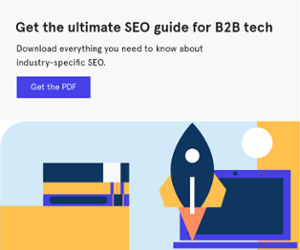For an SEO marketer, not understanding the difference between internal and external links is like not knowing the difference between cats and dogs.
That might sound a little crazy. But in the same way, it’s an important difference you need to understand, and your marketing friends could make fun of you if you get it wrong.
In this article, we’ll clarify the difference between internal and external links. And then, we’ll explore the purpose of each and how they feed into your wider marketing efforts.
What’s the difference between internal and external links?
Here’s a definition that clarifies the difference between internal and external links:
- Internal links point toward webpages within a website domain.
- External links point to web pages on a separate website domain.
They’re both important parts of building an effective website and SEO marketing strategy.
Why internal links matter
Internal links serve a few key purposes. Specifically, they:
- Provide structure for your website. The user experience is critical for an effective website, and using internal links provides structure so visitors can find what they’re looking for.
- Help search engines understand your website. Search engines are always trying to better understand and rank websites so they give their users the best experience. When you use internal links effectively, you’ll help search engine spiders better understand your website’s structure.
- Increase ‘stickiness’ (gross!) and conversions. When you link to further helpful content on your website, you’ll increase the chance of visitors staying. Also, this is a great opportunity to move your visitors down the next logical step in their buyers' journey.
Why external links matter
External links are important because they help your website gain more domain authority. Search engines want to understand how authoritative websites are so they can show the best results to their customers.
To do this, they consider how many links your website has, and, how authoritative the websites are that link to your website. The more links you have, and the higher the quality of those links, the higher your website will rank.
‘How do I get more high-quality external links to my website?’ We hear you ask.
Here’s how:
- Create brilliant content that people want to share and link to.
- Make it easy to share your content so people link to it from social media.
- Write guest content for other websites that then links back to your website.
If you’re still hungry for tips, check out our complete guide to getting more authoritative links.
Link building only gets you so far
Both internal and external links are critical pieces for building an effective website and marketing strategy.
However, this is only part of the big jigsaw puzzle that is SEO marketing. For example, to help your website rank highly on search engine results, you also need a website that’s fast and optimised for mobile. And, honestly, that’s just the start.
So, if you’d like a complete guide for a winning SEO strategy that builds your business, download our guide below.


def7.jpg?width=600&height=400&name=How%20to%20balance%20your%20SEO%20vs%20thought%20leadership%20content%20strategy%20%281%29.jpg)
![The ultimate SEO guide for B2B technology companies [2022]](jpg/a%20magnifying%20glass%20in%20front%20of%20a%20laptop%20screen6283-2.jpg?width=600&height=400&name=A%20magnifying%20glass%20in%20front%20of%20a%20laptop%20screen.jpg)
-138fb.jpg?width=1600&height=1000&name=The%20difference%20between%20internal%20and%20external%20links-01%281%29-1.jpg)
